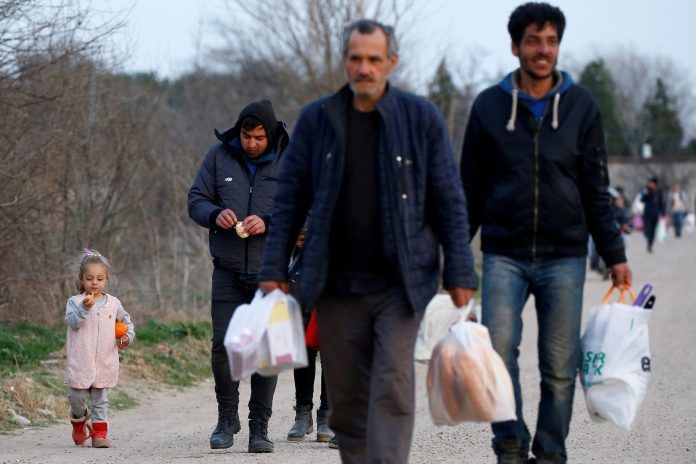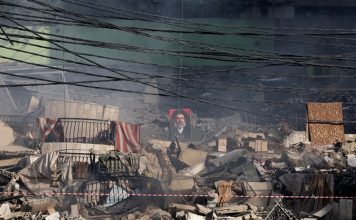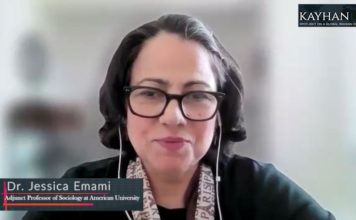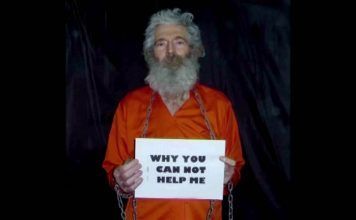There is no exact number of Iranians currently in Turkey awaiting the outcome of their asylum applications to the U.S. These individuals encounter limitations that prevent them from obtaining employment legally and generating income. Also, they do not have health insurance. Access to healthcare coverage is only possible through private insurance, which requires upfront payment for all medical costs, an option unavailable to most refugees.
Some refugees engage in unauthorized work to meet their living expenses. If they are caught, they incur significant fines for the first violation. However, if they are apprehended a second time, they are transferred to a refugee camp, where they must remain for about six months before either being released or deported from Turkey, depending on the specifics of their situation.
Refugees have one option to evade deportation: consult a lawyer and begin legal proceedings, which entails a fee ranging from 15,000 to 30,000 Turkish liras ($438 to $876) for an attorney. The UN does not provide aid in these areas, and refugees report that the relevant authorities merely state that they can do nothing.
Why are some Iranian refugees suspended in Türkiye due to mandatory service in the IRGC?
But the American border is open for the entry of terrorists and saboteurs of the IRGC?
The IRGC terrorists cannot enter the United States with a fake identity as a businessman or investor.…— Waiting To Flight (@waitingto_) September 24, 2024
In contrast to Europe, where asylum seekers are provided with financial help and housing until their case is resolved, those seeking asylum in Turkey do not receive any financial support from the asylum office. Many Iranian asylum seekers in Turkey have been living there for several years with no clear resolution regarding their status.
Nima is an Iranian refugee living in Turkey for a decade. Every morning, he and other refugees awaken with uncertainty about the future.
“We must visit the local police station monthly to check in and have our fingerprints taken. If an asylum seeker does not arrive on time for their check-in or fingerprinting, or if they miss their appointment at the police station for any reason, the Immigration Office [Presidency of Migration Management (PMM)] will look for legal grounds to start deportation proceedings against them from Turkey,” Nima explained.
“If an asylum seeker does not report to the police three times, their case will be automatically closed. They will then be apprehended and typically transferred to a deportation facility near the Iranian border,” he noted.
“If they allowed us to work, our lives could improve significantly. However, refugees are forced to work in fear and secrecy. If they are discovered, they face transfer to a camp. Currently, the situation regarding the deportation of refugees in Turkey is quite severe and has escalated compared to previous times,” Nima remarked.
“Certain individuals have exploited the situation to make money. When asylum seekers face difficulties, they must hire a lawyer, which is challenging as they do not receive financial aid and have no income. Given Turkey’s economic conditions and inflation, they must engage a lawyer to prolong the legal process. Lawyers claim they can only buy time,” Nima said.
“Approximately 30 refugees who have completed their military service with the Islamic Revolutionary Guard Corps (IRGC) have been in a state of uncertainty in Turkey for nearly three years,” Nima noted. “All necessary administrative procedures for their entry into the U.S. have been completed, and most have successfully undergone medical examinations and the first two stages of the International Catholic Migration Commission (ICMC) process.”
“Some individuals have had to repeat health checks multiple times, even though medical certificates are only valid for six months. Interestingly, while the U.S. has approved their applications, the Turkish Immigration Office has the authority to deport these individuals on short notice,” he clarified.
“The ICMC has said it expects clarification from the U.S. and is currently undergoing administrative processing. However, this process has been ongoing for nearly three years, leading to the expiration of medical certificates for refugees, requiring a complete restart of their application procedures,” Nima said.
“The circumstances have become increasingly challenging for these asylum seekers; one individual even traveled from another city to stage a hunger strike outside the ICMC office in Istanbul. Although the U.S. has approved their asylum applications, they have received deportation notices from the Turkish Immigration Office,” he added.
Nima also spoke about an Iranian refugee whose mother, an IRGC officer, facilitated his immigration. This individual moved to Canada from Turkey after spending three years there during the administration of former U.S. President Barack Obama.
Nima criticized the ease with which individuals using false identities can access America or Canada through scholarships, family connections, or group investments, stating: “Many of these embezzlers possess IRGC membership cards.”
He pointed out that the military service of these individuals occurred 10-12 or even 20 years ago, noting that the U.S. designated the IRGC as a terrorist organization in 2019.
In this context, a refugee living in Turkey has claimed that many Iranian refugees have successfully traveled from Turkey to Venezuela, then to Brazil, and subsequently entered the U.S. via the Mexican border, where they are now employed.
In contrast, many asylum seekers currently in Turkey remain uncertain about pursuing legal avenues to emigrate to America, a situation that has persisted for the past decade.
A significant number of these asylum seekers face a paradox: Although all required administrative procedures for their relocation to the U.S. have been completed, the Turkish Immigration Office asserts they lack proper documentation and have been denied entry. This predicament compels them to incur substantial legal fees in Turkey, hoping to buy time — ranging from six months to a year — to facilitate their eventual departure to America.
According to some refugees within a group of 30 individuals whose status remains uncertain, several refugees currently in Turkey have recently moved to the U.S. after completing the required legal processes, even though they share a similar background of having served in the IRGC.
Some suspect that there is a collaboration between the U.S. and Turkey aimed at decreasing the number of Iranian refugees in Turkey. While some members of this group either do not wish to return or cannot do so, they feel compelled to undertake the perilous sea journey to Greece, ultimately aiming to reach a city via the forest routes in Greece.
The refugees claim that Greece has set a trap for them. They allege that individuals have been hired to lie in wait in the forests along the refugees’ route, to “make them drowsy, stripping them of their clothing, and abandoning them without money or supplies near the Turkish border.”
Concurrently, as the frequency of deportations and expulsions rises, the market for illegal border crossings — both by land and sea — intensifies. In this scenario, one asylum seeker mentions the concept of “self-advocacy,” explaining that a self-reliant individual must use Google Maps to navigate to the Greek coast by sea and then continue their journey towards Western Europe through mostly land routes, typically aiming for countries like Germany and the Netherlands.
According to this individual, in Greece, if police-related entities in that country apprehend them or others, they will face severe physical abuse and arrest. These authorities do not physically assault women; however, they confiscate the money and phones of both male and female refugees before leaving them behind.
Many individuals, including those with children, travel from Turkey to Georgia to reach Europe via Russia. Unfortunately, many die during the journey or are abandoned by their smugglers. Some refugees attempt to board boats with significant amounts of money, hoping to reach Greece or directly arrive in Italy.














